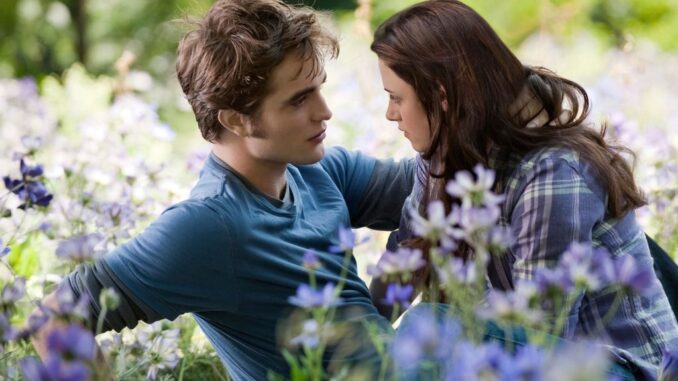
The Glint in the Shadow: Re-evaluating Edward Cullen Through a Modern Lens
The year was 2008. Sparkly vampires were cool. Angst was romantic. And Edward Cullen, with his sculpted features and brooding demeanor, was the ultimate boyfriend fantasy. As a teenager, I was fully immersed in the Twilight saga, enraptured by the passionate, albeit melodramatic, love story between Bella Swan and the century-old vampire. But recently, spurred by a wave of nostalgic rewatches sweeping social media, I revisited Forks, Washington, and found myself seeing Edward not as a Byronic hero, but as something much more unsettling: a creep.
The initial charm, the intense gaze and seemingly unwavering devotion, now feels suffocatingly oppressive. Edward's "love" for Bella is predicated on an unhealthy obsession that manifests as stalking, controlling behavior, and a complete disregard for her personal autonomy. The most glaring example is his constant surveillance. He admits to watching her sleep, a violation of privacy so profound it borders on the criminal. He justifies it as protection, a noble shield against the dangers he perceives, but it's a shield forged from a sense of ownership, not genuine concern.
Consider the scene where Bella goes to Port Angeles with her friends. Edward, invisible and unheard, follows them. He eavesdrops on her conversations, her most private thoughts shared with her friends about mundane teenage concerns. This isn’t the behavior of a loving partner; it's the act of a possessive individual who believes he has the right to intrude upon every aspect of her life. This act of "protection" doesn’t stem from a genuine fear for her safety, but from a need to control her environment and keep her within his grasp.
Furthermore, Edward actively isolates Bella from her human friends and family. He constantly reinforces the idea that the human world is dangerous and that she is fragile and vulnerable without him. He discourages her interactions with Jacob Black, painting him as a potential threat. This manipulation tactics, disguised as protectiveness, serves to sever her ties to her support system, making her increasingly dependent on him. The argument that he's simply trying to protect her from the supernatural world rings hollow when he’s the one introducing her to it in the first place.
The imbalance of power between them is also deeply problematic. Edward is a creature of immense power, both physically and mentally. He’s a predator, literally. Bella, on the other hand, is a clumsy, often helpless human. This power dynamic, coupled with his age and experience, creates a relationship built on inherent inequality. He is constantly making decisions for her, often without her consent, claiming he knows what’s best. He dictates the pace of their relationship, even going so far as to try and prevent her from turning into a vampire until he deems her ready. This paternalistic attitude reinforces the idea that he sees her not as an equal partner, but as someone he needs to manage and control.
Looking back, the romanticization of Edward's controlling behavior is a disturbing reflection of the societal norms prevalent at the time the books were written. The idea that a man should be possessive and protective of his partner, even to the point of overbearing surveillance, was often viewed as a sign of love. However, in today's more enlightened climate, we are more critical of these dynamics. We recognize that true love is built on trust, respect, and mutual autonomy, not on obsessive control and manipulation.
Edward Cullen, with his tragic backstory and captivating aura, may have once been the epitome of romantic love. But a closer examination reveals a character riddled with red flags. He is a reminder that love, true love, does not involve stalking, manipulation, or the erosion of personal boundaries. He is a cautionary tale, urging us to look beyond the surface of romanticized narratives and to recognize the toxic patterns that can masquerade as affection. As I close the book on this re-reading, I am left not with the warm glow of teenage infatuation, but with a chilling realization: sometimes, the monster isn't lurking in the shadows, but hiding in plain sight, disguised as a prince.
